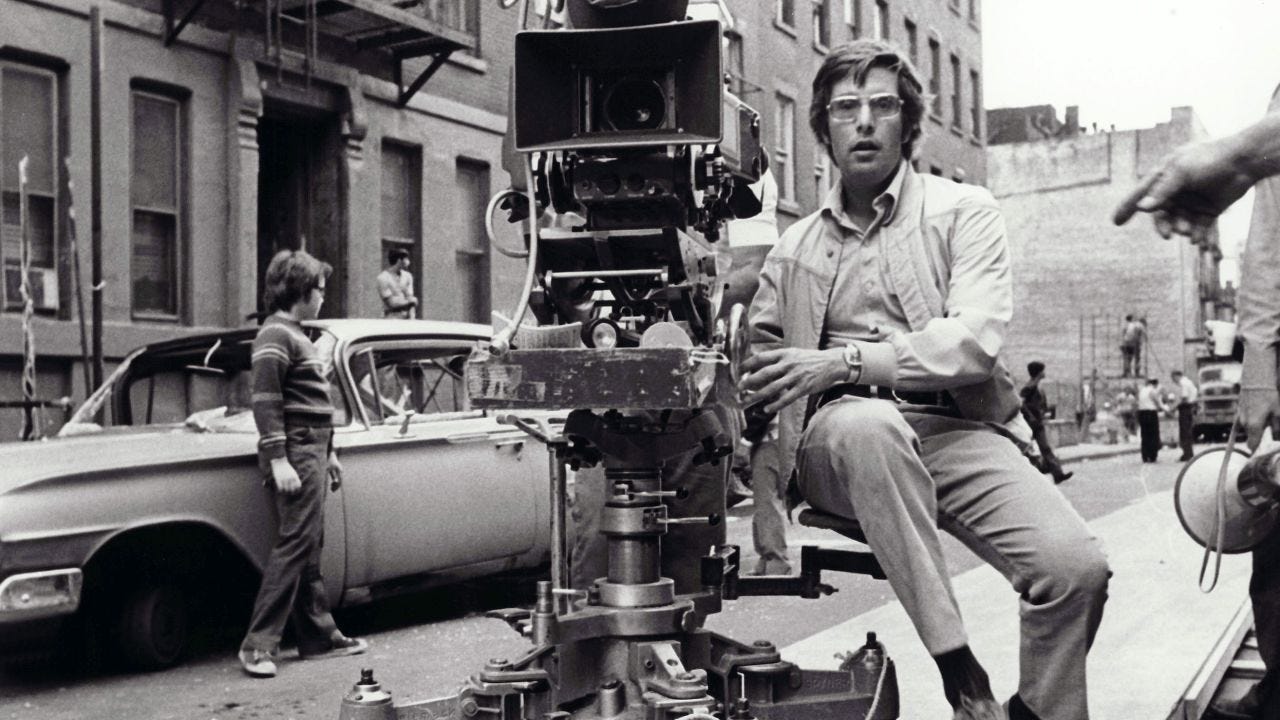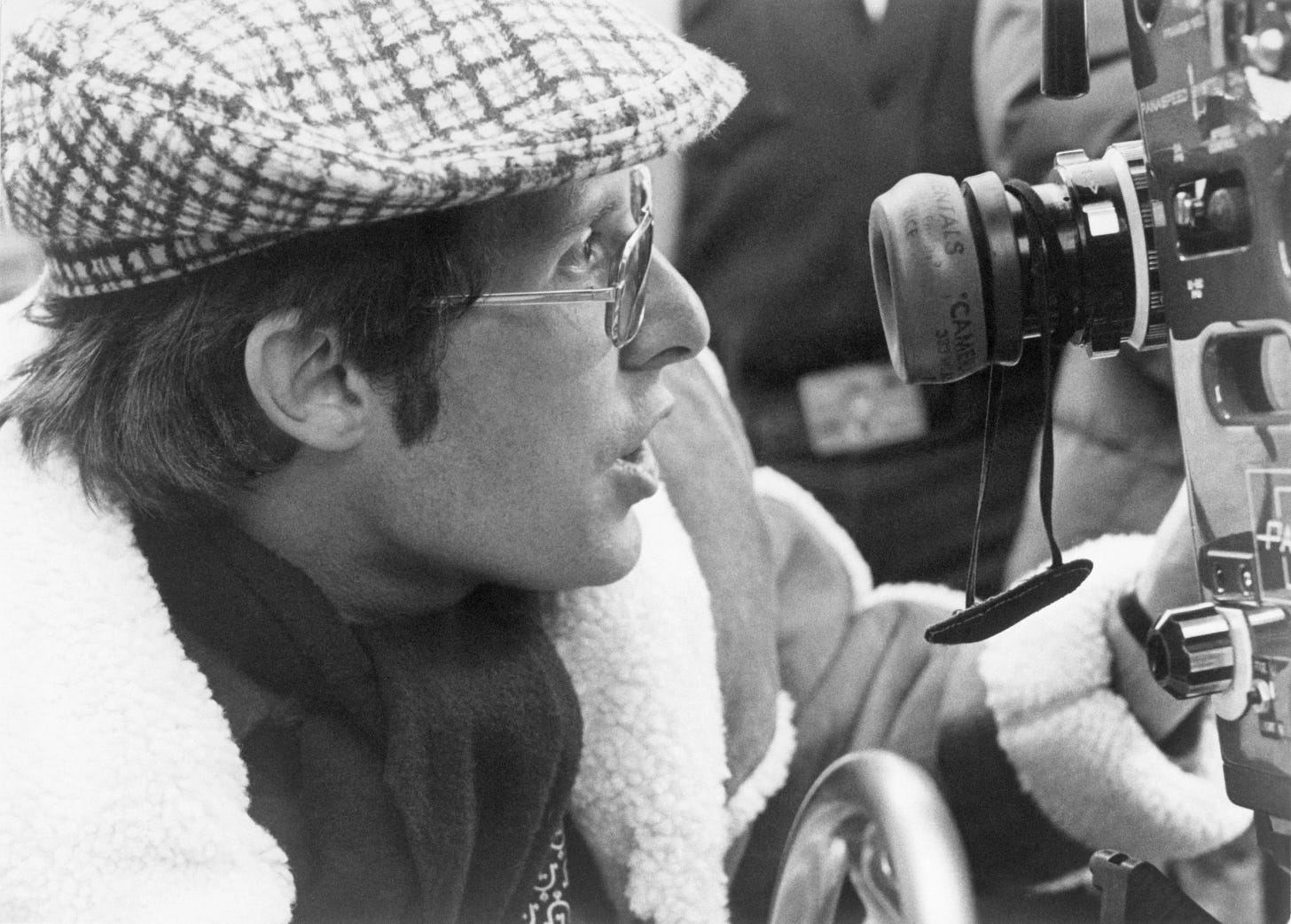RIP William Friedkin - 29 August, 1935 - 7 August, 2023
WILLIAM Friedkin, famed director The French Connection and The Exorcist, has started to tell fighting stories.
Despite being a pudgy 62 he still resembles the man who created the best car chase in cinematic history, told Steve McQueen to "go screw himself" and made Francis Ford Coppola think twice about being a film director.
But right now, he's sitting on the top floor of a city hotel, with his pants hiked over his belly button, bashing his right hand into his left for effect. The name for his pain is Bill O'Malley, the real-life reverend who played Father Dyer in The Exorcist.
"It's 3am, the middle of winter and Father Dyer must cry," Friedkin says, his dark eyes growing wilder by the second.
"Bill (O'Malley) was doing take after take and not getting anywhere. So many takes - no crying. The crew thought we'd never get it done. I didn't think we'd ever get it done. And there was nothing I could tell him because he had not developed the techniques of an actor. So I went up to him and I said, 'Bill, do you love me?' And he told me he did.
"Then, I said, 'Bill, do you trust me?' And he said he did. So I cued the cameras to roll and then turned back to him and hit him across the face as hard as I could. He was shocked. I said, 'All right. Go ahead and do it now. Just f---ing do it.' And he went down to do the scene and he burst into tears.
"We cut the cameras and he got up and hugged me. He kissed me. And he still says to this day, 'I really needed that.'
"Seriously, that was the only thing that was going to get it done or else we'd still be here."
The Exorcist, perhaps the scariest horror movie of all time, did not earn its reputation by accident. Another of Friedkin's stunts was to fire a revolver in the air during before filming pivotal scenes.
"It produced the result," he says, shrugging.
"These guys are meant to be looking at the aberration of a demon. But what they're actually looking at when the cameras are on them is nothing. And there was only one way to get them to react and that's to shock the bejesus out of them. So, at regular intervals during filming, I'd shoot a 38 Policeman's Special in the air and it produced something truly frightening."
Friedkin is in Melbourne to launch a season of his 1977 film, Sorcerer, at the Astor theatre. The film follows a group of criminals from Europe, the Middle East and the US, who seek refuge in a Dominican Republic village until their separate "situations" have blown over.
Desperate for cash, the criminals, led by Roy Scheider, shift several crates of aging and volatile dynamite across 218km of rugged terrain.
Friedkin says the on-set problems he experienced during the 10-month shoot rivalled Francis Ford Coppola's on Apocalypse Now – particularly, "the bridge scene" in which two trucks are driven over a rope bridge while the river rages beneath.
"We started filming the bridge scene in the Dominican Republic," he says.
"We built the bridge over a rushing river that was 3m high. Now, this river had never dried up. Never dried up. We got there, finished building the bridge, and the river dried to the ground.
"So we shut the picture down and took the bridge to another jungle location in Mexico. We put the bridge over a rushing, 4m high river that had never dried up - the memory of man runneth not to the contrary. Then, just before we were about to film, the river started to recede and recede until it was about 30cm high."
Friedkin hid the fact that there wasn't much water in the river by spraying buckets of mechanically generated rain over the bridge.
But one problem he would never fix was that of Steve McQueen.
Friedkin desperately wanted McQueen to play the role that would eventually go to Scheider - that of the small-time New Jersey gangster.
"We finished the script and I gave it to McQueen and he rang me back immediately and he said, 'I think it's the best script I've ever read'," he says.
"Then he asked where I was going to shoot it. I told him South America. And he acknowledged that the filming would take a long time and said that he didn't want to be out of the country for too long as he'd just taken up with Ali MacGraw.
"He said, 'I can't leave my wife for that length of time.' So I told him to bring her over. And he said, 'Well, can't you write in a part for her.'
"I said, 'Look, you just told me it's the best script you've ever read. Now you want me to write in another character?' And he said, 'OK. How about you make her associate producer?'
"Now, I was terribly arrogant at the time - I'm less so now - and I said, 'No. I'm not going to make her associate producer. That's insane. I don't need an associate producer. But bring her over and we'll put her up in the nicest accommodation we can.' He told me he couldn't do it. And I said, 'Well screw you.'
"I was totally arrogant. I did not realise then what I know now, which is the close-up is more important than the wide shot. That a close-up of Steve McQueen's face is more interesting to an audience than the most beautiful landscape ever shown."
With the interview drawing to a close, I remind Friedkin of a scene in Peter Biskind's book Easy Riders, Raging Bulls where Francis Ford Coppola, who had just finished editing The Godfather, goes to see Friedkin's The French Connection.
On his way out of the movie Coppola moans to his assistant: "Well, I guess I failed. I took a popular, pulpy, salacious novel and turned it into a bunch of guys sitting around in dark rooms talking."
"Yeah," replied his assistant. "I guess you did."
Friedkin remembers the anecdote: "Yes, that's true. Francis told me that story. He thought he'd fail with The Godfather because it was too long and too slow. Now, if you look at The French Connection it goes at a snail's pace compared with the movies made today. We were just lucky that the audience was hip to what we were doing."






A great man and a brilliant director, after watching his more serious films, watch the joy and humour he brought to The Brinks Job. He was also a kind and generous man, I once told him how I couldn’t find a copy of Sorcerer, and he arranged for a copy to be sent to me. Then asked me for my thoughts on the film.